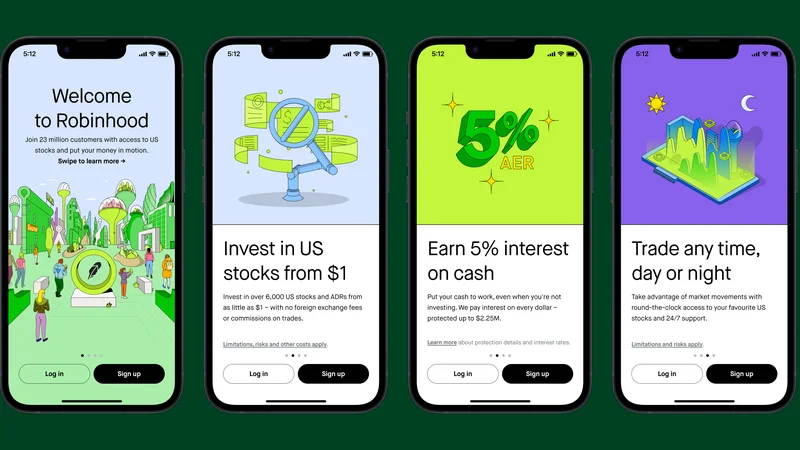The Future of Auto Parts: How to Find Any Part Instantly and What Comes Next
Walk into any `auto parts` store—an Autozone, a NAPA, any of them—and you’re faced with a familiar sight. A wall of choice. You see the bright yellow of a Fram oil filter, the classic blue of an Autolite spark plug box, the reassuring red of Raybestos brakes. It feels like a marketplace of competitors, a healthy ecosystem where you, the customer, get to pick the winner.
But for years, that’s been an illusion. A comforting, well-marketed illusion.
Most of those brands, and dozens more, weren’t competitors at all. They were siblings, all living under the same colossal roof of a holding company called First Brands Group. And that roof has just spectacularly caved in. The news that FBG has filed for bankruptcy with over $10 billion in liabilities isn’t just another corporate headline; it's a tremor signaling the collapse of an entire way of thinking.
The immediate details are staggering. We’re talking about a company that owns everything from your windshield wipers (Trico, Anco) to your trailer hitch (Reese, Draw-Tite). The financial hole is even more mind-boggling: a reported $2.3 billion gap on the balance sheet, a chasm created by a frantic and potentially fraudulent shell game of selling invoices to get cash fast. When I first read about the $2.3 billion hole, I honestly had to re-read the sentence. It's a number so vast it feels abstract, but its impact on the real-world supply of `replacement car parts` is intensely concrete.
The easy narrative, the one you’ll see everywhere, is one of corporate greed and mismanagement meeting the harsh realities of tariffs and a strained post-COVID supply chain. And that’s true, as far as it goes. FBG gorged on debt to acquire brand after brand, creating a giant so bloated it spent $900 million a year just servicing its debt. It was a house of cards built during a hurricane. But to stop there is to miss the profound, and dare I say, hopeful story unfolding beneath the rubble.
This isn't just a failure. This is a paradigm shift, broadcast in flashing red lights.
Collapse as a Catalyst: The Birth of a Smarter Supply Chain
The End of the Monolith
For decades, the gospel of business was consolidation. Bigger is better. Buy your competitors, control the shelf space, centralize everything. FBG was the poster child for this philosophy. But what we’re learning, the hard way, is that centralization creates fragility. When you bundle two dozen vital supply chains into one financial entity, the entire system inherits a single point of failure. A shock to the head—whether it’s tariffs, a pandemic, or simple C-suite avarice—can paralyze all the limbs at once.
We’re seeing the fallout already. Lenders are pouring in half a billion dollars in rescue financing, with one of their attorneys admitting they fear they’re “lending good money after bad.” It’s a desperate attempt to keep the lights on, to prevent the sudden disappearance of everything from `honda parts` to `ford parts` from the aftermarket. But propping up a broken model isn’t the answer.

The answer is to build a better one. And while FBG was collapsing, another automaker was quietly laying the foundation for that new model.
Look at what Renault is doing in Mexico. It’s not a flashy headline, but it’s a stroke of absolute genius. They are building a regional purchasing hub, deliberately shifting their supply chain to be closer to home. They’re identifying local Mexican suppliers to provide components for their plants in South America and for their own domestic after-sales network. This isn't just about dodging tariffs; it's a fundamental rethinking of how a supply chain should work.
They are leveraging things like the USMCA’s rules of origin—in simpler terms, it means a certain percentage of a vehicle’s `parts of a car` must be sourced from North America—not as a burden, but as a strategic opportunity to build a network that is faster, more resilient, and less vulnerable to global shocks.
What we're witnessing is a transition as significant as the shift from mainframe computers to the internet. The old FBG model was a mainframe: a massive, centralized, all-powerful entity that was incredibly powerful but also incredibly brittle. If the mainframe went down, everything stopped. The new model, the Renault model, is the internet: a distributed network of smaller, interconnected nodes. If one node in Mexico or Colombia has an issue, the rest of the network can adapt and reroute. It’s inherently more robust. It’s antifragile.
This is the kind of breakthrough that reminds me why I got into this field in the first place. It’s the application of networked, systems-level thinking to the grimy, physical world of `car parts for sale`.
So what does this mean for you, the next time you’re searching for `car parts near me` or trying to `buy car parts online`? In the short term, yes, there might be some turbulence. Prices on some brands may rise as the FBG monolith is dismantled. But look past the immediate horizon. Can you see it?
We are at the beginning of The Great Unbundling. The collapse of FBG creates a vacuum, an opportunity for a new ecosystem to emerge. A future where the shelf at your local `advance auto parts` isn't an illusion of choice, but a reflection of a truly diverse and resilient network of manufacturers. A world where innovative new companies can actually compete because they aren’t just waiting to be swallowed by a giant. Imagine a future where the next breakthrough `car battery` technology or a more efficient water pump doesn't come from a sprawling conglomerate but from a specialized, agile company in Ohio, or Ontario, or Monterrey, all connected in a smarter grid—the speed at which this decentralized innovation could accelerate progress is just staggering, it means the gap between today’s fragile system and tomorrow’s resilient one is closing faster than we can even comprehend.
Of course, this transition comes with a responsibility. There are real people, real jobs, tied up in the FBG collapse. A just transition means ensuring that the skilled workers caught in the failure of this old model have a bridge to the new one. The goal isn’t just to build a more efficient system, but a more human one.
The fall of a titan always feels like an ending. But it’s not. It’s a clearing of the forest floor, making way for new growth. The illusion of choice is dying, and what’s poised to replace it is something far more powerful: the real thing.
The Blueprint Is Already Here
The collapse of a corporate giant isn't a tragedy; it's an opening. We are witnessing the painful, necessary end of a brittle, monolithic era and the birth of a networked, resilient, and ultimately more human-scale industrial future. The pieces are already being laid by forward-thinking companies. We just have to connect them.
Reference article source:
-

Warren Buffett's OXY Stock Play: The Latest Drama, Buffett's Angle, and Why You Shouldn't Believe the Hype
Solet'sgetthisstraight.Occide...
-

The Great Up-Leveling: What's Happening Now and How We Step Up
Haveyoueverfeltlikeyou'redri...
-

The Future of Auto Parts: How to Find Any Part Instantly and What Comes Next
Walkintoany`autoparts`store—a...
-

Applied Digital (APLD) Stock: Analyzing the Surge, Analyst Targets, and Its Real Valuation
AppliedDigital'sParabolicRise:...
-

Analyzing Robinhood: What the New Gold Card Means for its 2025 Stock Price
Robinhood's$123BillionBet:IsT...
- Search
- Recently Published
-
- DeFi Token Performance & Investor Trends Post-October Crash: what they won't tell you about investors and the bleak 2025 ahead
- Render: What it *really* is, the tech-bro hype, and that token's dubious 'value'
- APLD Stock: What's *Actually* Fueling This "Big Move"?
- Avici: The Real Meaning, Those Songs, and the 'Hell' We Ignore
- Uber Ride Demand: Cost Analysis vs. Thanksgiving Deals
- Stock Market Rollercoaster: AI Fears vs. Rate Hike Panic
- Bitcoin: The Price, The Spin, & My Take
- Asia: Its Regions, Countries, & Why Your Mental Map is Wrong
- Retirement Age: A Paradigm Shift for Your Future
- Starknet: What it is, its tokenomics, and current valuation
- Tag list
-
- Blockchain (11)
- Decentralization (5)
- Smart Contracts (4)
- Cryptocurrency (26)
- DeFi (5)
- Bitcoin (31)
- Trump (5)
- Ethereum (8)
- Pudgy Penguins (6)
- NFT (5)
- Solana (5)
- cryptocurrency (6)
- bitcoin (7)
- Plasma (5)
- Zcash (12)
- Aster (10)
- nbis stock (5)
- iren stock (5)
- crypto (7)
- ZKsync (5)
- irs stimulus checks 2025 (6)
- pi (6)
- hims stock (4)
- kimberly clark (5)
- uae (5)
